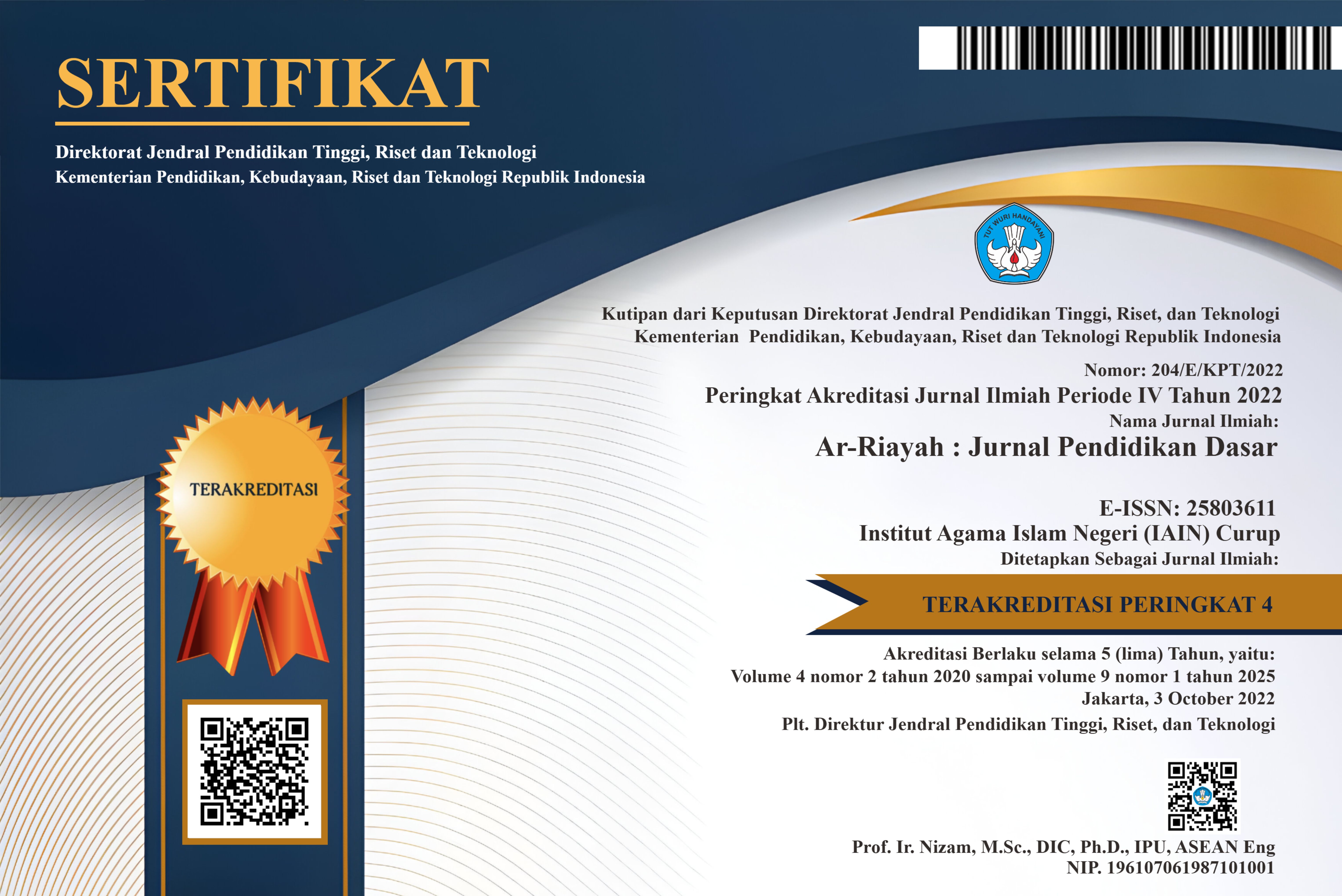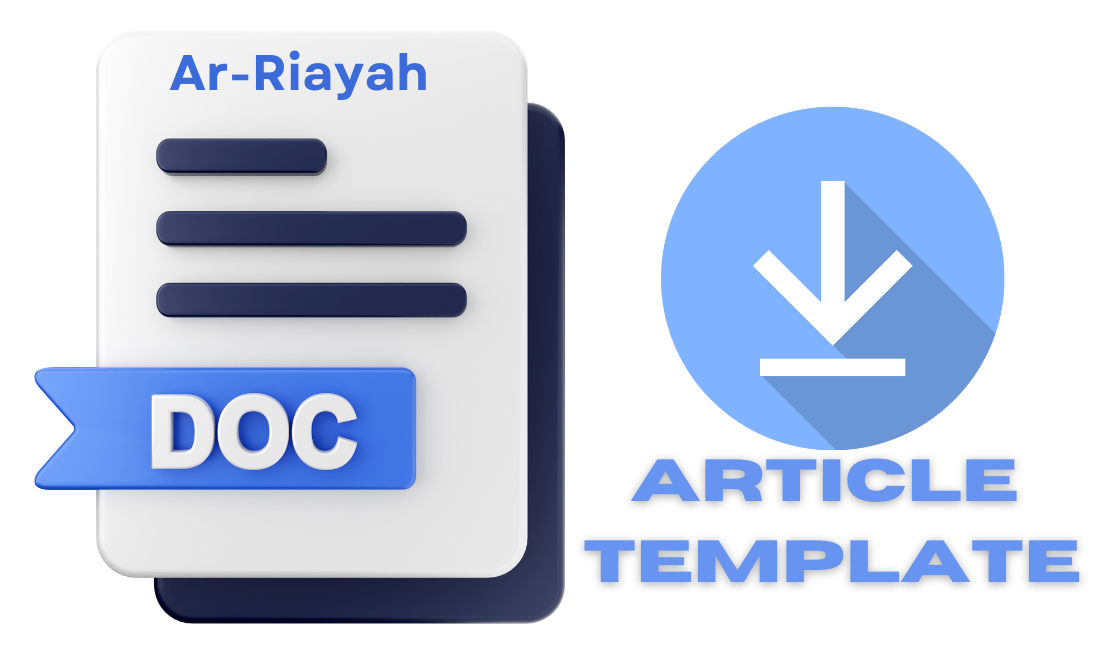Peningkatan Proses Pembelajaran Tematik Terpadu Menggunakan Pendekatan Scientific di Sekolah Dasar
DOI:
https://doi.org/10.29240/jpd.v2i1.428Keywords:
Integrated Thematic, Scientific ApproachAbstract
Downloads
References
Ahmadi, Iif Khoiru dan Sofan Amri. 2014. Pengembangan dan Model Pembelajaran Tematik Integratif. Jakarta: Prestasi Pustaka
Emzir. 2011. Metodologi Penelitian Pendidikan Kuantitatif dan Kualitatif. Jakarta : Rajawali Pers
Gauch, Hugh G. (2013). Scientific Method in Practice (Reprint ed.). Cambridge University Press. p. 3. ISBN 9780521017084.
Kemendikbud. 2013. Pedoman Kegiatan Pendampingan Implementasi Kurikulum 2013 oleh Pengawas Sekolah. Jakarta : Kemendikbud
Kunandar. 2008. Langkah Mudah Penelitian Tindakan Kelas Sebagai Pemgembangan Profesi Guru.Jakarta : Rineka Cipta
Kurniasih, Imas & Berlin Sani. 2014. Sukses Menimplementasikan Kurikulum 2013. Surabaya: Kata Pena
Lazim. 2014. Penerapan Pendekatan Saintifik dalam Pembelajaran Kurikulum 2013. Yogyakarta
Hamalik, Oemar. Kurikulum dan Pembelajaran. Jakarta : PT. Bumi Aksara
Majid, Abdul. 2014. Pembelajaran Tematik Terpadu. Bandung: Rosdakarya
Mulyasa, E. 2010. Implementasi KTSP: Kemandirian Guru dan Kepala Sekolah. Jakarta: Bumi Aksara
Sanjaya, Wina. 2011. Strategi Pembelajaran Berorientasi Standar Proses Pendidikan. Jakarta: Kencana
Steven D. Schafersman. http://www.geo.sunysb.edu/esp/files/scientific-method.html (diakses 04 Agustus 2017)
Sugiyono. 2012. Metode Penelitian Pendidikan. Bandung: IKAPI
Varelas, M and Ford M. The scientific method and scientific inquiry: Tensions in teaching and learning. (USA: Wiley Inter Science, 2009).
Wijaya, Kusumah dan Dedi dwitagama. 2011. Mengenal Penelitian Tindakan Kelas. Jakarta: PT. Indeks
Additional Files
Published
How to Cite
Issue
Section
Citation Check
License
Authors who publish with Ar-Riayah: Jurnal Pendidikan Dasar agree to the following terms:
Authors retain copyright and grant the journal right of first publication with the work simultaneously licensed under a Creative Commons Attribution-NonCommercial-ShareAlike 4.0 International License (CC BY-NC-SA 4.0) that allows others to share the work with an acknowledgment of the work's authorship and initial publication in this journal.
Authors are able to enter into separate, additional contractual arrangements for the non-exclusive distribution of the journal's published version of the work (e.g., post it to an institutional repository or publish it in a book), with an acknowledgment of its initial publication in this journal.
- Authors are permitted and encouraged to post their work online (e.g., in institutional repositories or on their website) prior to and during the submission process, as it can lead to productive exchanges, as well as earlier and greater citation of published work (See The Effect of Open Access).











